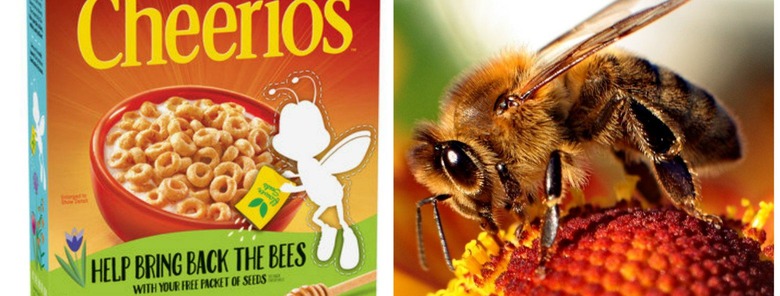Don't Plant Those Cheerios Seeds! They May Grow Into Highly Invasive Plants
Last week we reported that the cheery cereal mascot BuzzBee had been removed from Honey Nut Cheerios boxes to call attention to the global disappearance of bees. General Mills is encouraging direct action by handing out millions of wildflower seeds inside boxes of Cheerios.
While this may sound like a great idea in theory, Lifehacker figured out that some of the wildflower species included with your cereal purchase might not be very bee-friendly. The California poppy is considered an invasive exotic pest plant in the Southeast. The forget-me-not is banned as a noxious weed in Massachusetts and Connecticut. Many of the other plant species are not native to the United States at all, so they might not be a good match for bee species to pollinate in these parts.
"No plant is inherently 'bad', but many species can and have caused a great deal of damage when they are introduced into locations outside of their native range," ecologist and invasive plant specialist Kathryn Turner told Lifehacker. "Invasive species can out-compete the natives they encounter, they can take up all the space and use up all the resources, they can spread disease and cause other physical changes to their new homes."
In a separate statement, General Mills has denied that the wildflower seeds selected would grow up to be invasive or harmful.
"[These flowers] were selected for their flowers which produce nectar and pollen that are attractive to bees and other pollinators," General Mills said in a statement. "The mixture contains annuals, biennials, and perennials that produce flowers throughout the entire growing season (early, mid, and late) in a wide range of colors. The seed varieties in the mix are not considered invasive."
